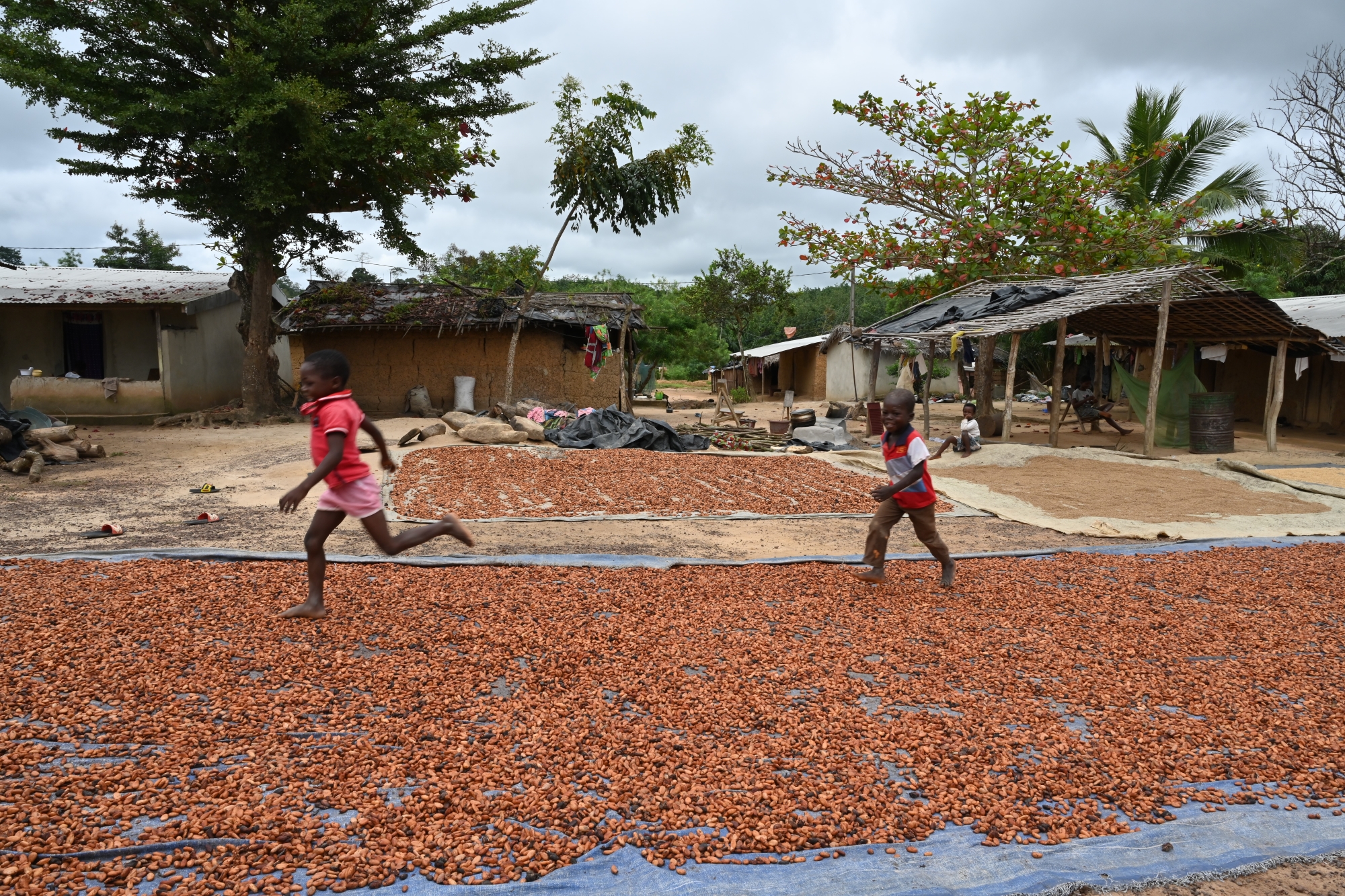Confronting the spectre of child labour in Côte d’Ivoire is an enormous task. Lack of access to basic services, education, healthcare, and alternative income generating activities are only part of the problem. There are also complex social, geopolitical, and migratory issues that trigger children’s participation in the workforce.
Lack of education
Most cocoa producing areas of Côte d’Ivoire lack access to formal, quality schools with sufficient resources. Oftentimes schools are too far from villages and where they do exist, they are understaffed and don’t have the appropriate materials to ensure children learn at the right level. Regional authorities do not always know where schooling needs exist or what they are, so they are unable to provide the necessary resources to strengthen education opportunities for children. Dropout rates are high, despite legislation requiring children to attend school until they are 15 years old.
Strong social norms
Parents taking their children along with them to their farms is tout à fait normale – completely normal – in many of the villages in the Nawa. In fact, many parents expect their children to come along to learn the ropes, so that children will know how to farm the crops effectively and efficiently when they inherit land from their parents. Parents see the value of education, but also choose to hedge their bets, ensuring that they pass agricultural knowledge and skills on to their children.
While social workers, based on national laws governing child labour that align with international norms and standards, explain to communities that the most important thing is to avoid subjecting children to work that affects their health, well-being, and education, other actors especially from the private sector argue that the presence of children in cocoa plantations is strictly prohibited, with the threat of boycotting their cocoa production. This plurality of messages from actors working to eliminate child labour creates frustration in some communities, leading them to resist all initiatives promoting new values and norms for child protection.
Harsh labour conditions
Much of the labour in the cocoa sector is done informally and collectively by families and neighbours. This leads to a lack of oversight of working conditions. Understanding of workers’ rights, especially those of children, is limited in most areas. Farmers are often underpaid for their goods. Furthermore, they are susceptible to crime and robbery of income during the harvesting season.
Most farmers are unable to pay day workers to assist them in harvesting their crops. As a result, farmers rely on family and friends to undertake this labour, often looking to their children to fill the labour gap.
The labour itself is arduous, requiring much physical exertion in hot conditions. Injuries result from machete accidents, falling, overexertion when carrying produce, and bites from wild and venomous animals.
Climate change
Like many neighbouring regions, the Nawa, and Côte d’Ivoire in general, are increasingly threatened by changing climate patterns. Erratic rains and unexpected droughts cause inconsistent harvest periods and lower yields. Soil conditions are changing due to loss of biodiversity, and cocoa crops are progressively more affected by infections and plagues caused by changing climatic conditions, particularly swollen shoot.
Migration and regional insecurity
In the Nawa, many small encampment villages are made up entirely of migrant workers from neighbouring countries. The longstanding insecurity in Mali and Burkina Faso, which has worsened over the past years, has led many Malians and Burkinabé to seek income opportunities in Côte d’Ivoire, a relatively safe and stable country by comparison. Some of these migrant workers are unaccompanied minors, sent by their families from home to earn a living abroad. These communities often fall outside the purview of the regional authorities, preventing oversight and plunging them into vulnerability to exploitation, and violence.
Weak government regulation and enforcement
National legislation and its enforcement often fails to protect the rights of cocoa farmers and workers. Despite legislation requiring all children to attend school until 15 years of age, many children in the Nawa don’t ever get the chance to attend school. Another challenge is the slow integration by the Conseil du Café-Cacao of quality criteria for cacao production related to respecting business principles and child rights.

